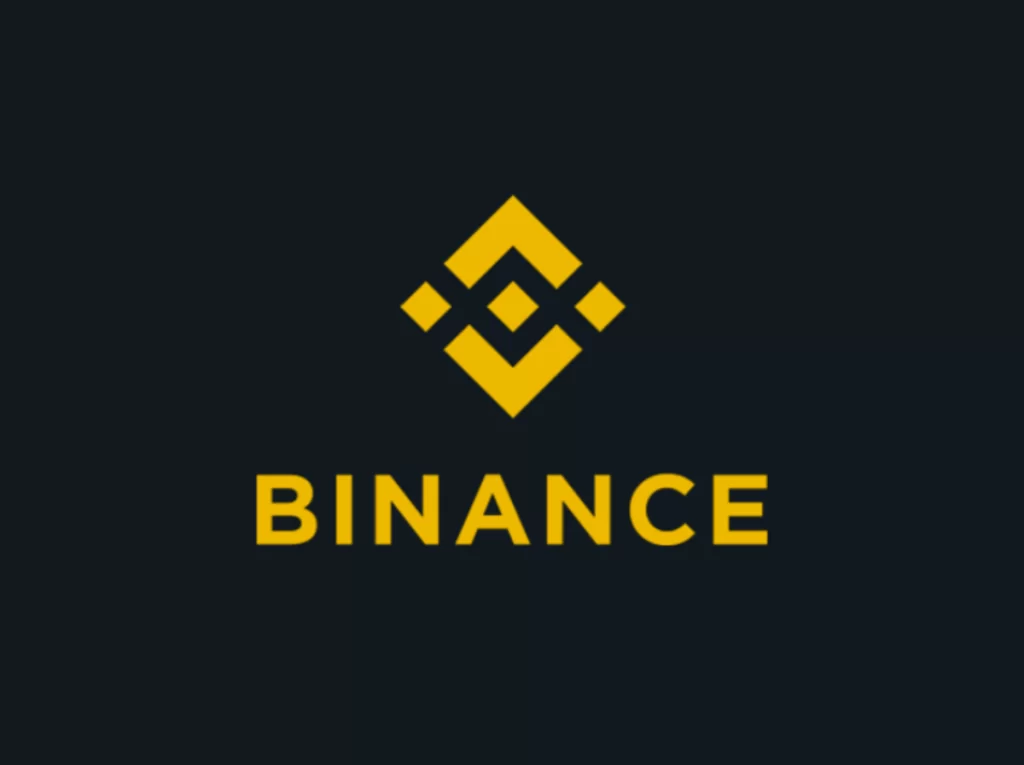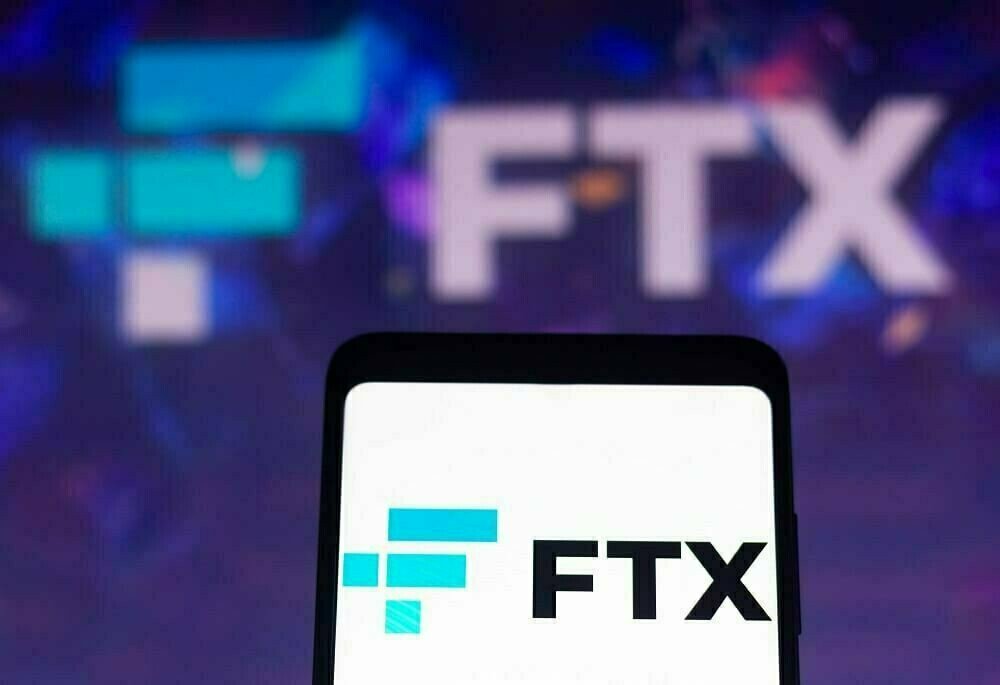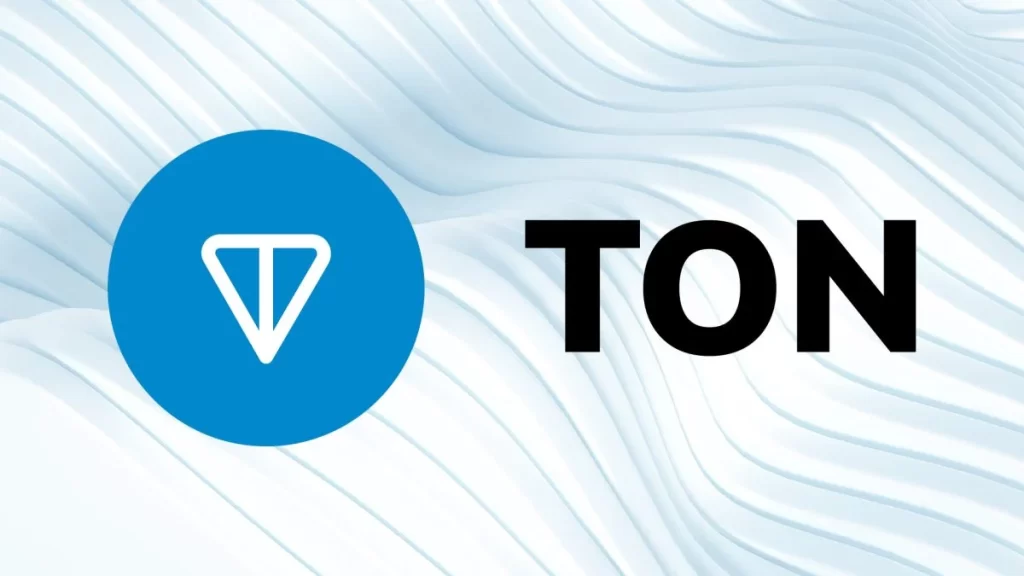Binance, a major cryptocurrency exchange, encountered a setback as a United States court declined to dismiss several claims brought against it by the Securities and Exchange Commission (SEC).
In a court filing on June 28, Judge Amy Berman Jackson specified that claims concerning Binance’s staking program, the initial coin offering of BNB, anti-fraud violations, and the SEC’s assertion that former CEO Changpeng “CZ” Zhao acted as a “control person” will proceed.
Additionally, the court ruled that Binance should have been registered under the Exchange Act.
However, Judge Jackson did dismiss claims related to secondary market sales of BNB and transactions involving the Binance USD (BUSD) stablecoin.
Her decision to dismiss the BNB secondary market sales claim echoed a similar ruling by Judge Analisa Torres in a previous SEC case against Ripple.
Scott Johnsson, a finance lawyer, characterized the ruling as a significant setback for the SEC, while Fox Business reporter Eleanor Terrett anticipated its implications for other cryptocurrency platforms such as Coinbase, Kraken, and Consensys.
READ MORE: Bitcoin Activity Hits Lowest Levels Since 2010 Amid Retail Investor Retreat
Judge Jackson also rejected the SEC’s claims regarding Binance’s passive income feature, “Simple Earn,” scheduling a court hearing for further proceedings on July 9.
The SEC, under the leadership of Gary Gensler, initiated legal action against Binance in June 2023, alleging that the exchange offered unregistered securities and operated unlawfully within the U.S.
Binance and CZ sought to dismiss the lawsuit approximately three months later, arguing against the SEC’s purported overreach.
Despite these legal challenges, Binance maintains its status as the world’s largest cryptocurrency exchange, boasting more than 200 million users and managing assets exceeding $100 billion.
This ongoing legal battle underscores regulatory scrutiny within the cryptocurrency industry, particularly concerning compliance with securities laws and operational licensing in various U.S. states.
To submit a crypto press release (PR), send an email to sales@cryptointelligence.co.uk.
The United States Securities and Exchange Commission (SEC) has filed a lawsuit against Consensys, the parent company of MetaMask, alleging violations related to unregistered brokerage and the sale of securities.
According to the complaint filed on June 28, Consensys has been operating as an unregistered broker and conducting unregistered securities offerings through its MetaMask Swaps service since 2020.
The SEC claims that Consensys has earned more than $250 million in fees from crypto asset transactions and staking services without complying with federal securities laws, thereby leaving investors without necessary protections.
The SEC seeks permanent injunctions, civil penalties, and other equitable relief against Consensys for these alleged violations.
In response to the lawsuit, Consensys has been vocal about its position, stating, “Since January 2023, Consensys has engaged in the unregistered offer and sale of securities in the form of crypto asset staking programs, and acted as an unregistered broker, through its MetaMask Staking service.
“By its conduct as an unregistered broker, Consensys has collected over $250 million in fees.”
The SEC further alleges that Consensys acted as an intermediary in unregistered transactions by facilitating investments in staking programs offered by Lido and Rocket Pool.
The complaint reads, “Consensys has offered and sold tens of thousands of securities for two issuers: Lido and Rocket Pool.
By this conduct, Consensys acts as an underwriter of those securities and participates in the key points of their distribution.”
Consensys had preemptively sued the SEC in April following a Wells notice, challenging the classification of Ether and related staking services as securities.
READ MORE: Cardano Developers Thwart DDoS Attack, Plan Node Upgrade to Enhance Security
The company criticized the SEC’s approach, accusing it of regulatory overreach and attempting to expand its jurisdiction through litigation.
The SEC’s complaint specifically targets staking programs offered by Lido and Rocket Pool, arguing that these programs constitute investment contracts and thus qualify as securities.
The SEC asserts that investors participating in these staking programs expect profits from the managerial efforts of Lido and Rocket Pool, despite neither entity filing a registration statement with the SEC.
Staking, a process where cryptocurrencies are locked to support blockchain networks, involves validators confirming transactions and earning rewards, akin to passive income.
The SEC’s scrutiny extends beyond Consensys; previously, Kraken settled with the SEC for $30 million over similar allegations, prompting the cessation of its staking services for U.S. clients.
Coinbase, another prominent entity, is also contesting the SEC’s stance on staking in ongoing legal proceedings.
In essence, the SEC’s actions underscore its regulatory stance on cryptocurrency-related activities, particularly staking services, emphasizing compliance with securities laws to protect investors’ interests.
To submit a crypto press release (PR), send an email to sales@cryptointelligence.co.uk.
The launch of spot Ether exchange-traded funds (ETFs) in the United States, originally anticipated for early July, has faced delays by the U.S. Securities and Exchange Commission (SEC).
According to Bloomberg ETF analysts Eric Balchunas and James Seyffart, the SEC has extended the review period for S-1 forms submitted by prospective issuers, pushing the expected launch to mid-July or later.
“The SEC has taken additional time to return the S-1 forms,” Balchunas stated, indicating a delay beyond the initial July 2 target.
The SEC has requested resubmissions by July 8, potentially postponing the ETF launch until mid-to-late July, as per Seyffart’s analysis.
Nate Geraci, president of ETF Store, noted that recent S-1 revisions were minor, suggesting a clearance within 14–21 days once resubmitted.
Despite uncertainties in the exact timeline, the SEC has hinted at a possible summer launch.
Earlier predictions by Balchunas in June suggested an early July launch window based on initial SEC feedback being less critical than expected.
The process for approving Ethereum ETFs involves two steps: the approval of 19b-4 forms in May, which was completed for eight ETF bidders, and now the review of S-1 forms.
Unlike the 19b-4 filings, the S-1 forms do not have a fixed deadline, subjecting issuers to the SEC’s review schedule.
SEC Chair Gary Gensler confirmed progress in the ETF approval process on June 26.
Major issuers like BlackRock, Fidelity, and others have been allowed to participate following a rule change. VanEck and others have prepared 8-A forms for exchange listings by July 8.
Gensler cautioned that despite progress, actual listings on stock exchanges might not occur until September, emphasizing the process’s reliance on issuer response times.
He highlighted ongoing coordination between the SEC and applicants as crucial to advancing Ether ETF listings.
To submit a crypto press release (PR), send an email to sales@cryptointelligence.co.uk.
On June 28, Yield App, a Seychelles-based crypto investment platform, announced the immediate cessation of all its operations.
This decision, as stated by the company, “had been made to ensure fair and equal treatment for all Yield App’s users and stakeholders.”
The company cited significant portfolio losses due to third-party hedge fund managers who held Yield App’s assets on the now-defunct cryptocurrency exchange FTX, which is currently embroiled in litigation.
Despite suspending community channels, Yield App assured users that a support channel would remain accessible through its official website.
CEO Tim Frost informed Cointelegraph that the company has been “pursuing litigation against several hedge funds” responsible for the substantial losses on assets held in custody on FTX.
“Some of these proceedings are ongoing,” Frost explained.
“However, after 18 months of recovery actions, we have been advised to shutter the platform in the best interest of creditors, whereby the administrators will pursue claims directly.”
Yield App’s transparency has been questioned following the announcement.
“In a Discord message dated November 10, 2022, Frost had reassured users that the firm had “no significant exposure to FTX.”
An anonymous source expressed confusion to Cointelegraph, stating, “This whole thing doesn’t make any sense.
“I think it’s super weird they got affected by FTX when it’s already two years ago, and they gave an official statement.”
Addressing these concerns, Frost reiterated that Yield App itself “did not have significant direct exposure to FTX.”
He clarified that the indirect exposure through fund managers only became apparent later, leading to ongoing legal proceedings.
The collapse of FTX has led to multiple asset sales and settlements.
In 2024, FTX sold claims and assets, including an 8% stake in the AI firm Anthropic, its European arm for $33 million, and plans to sell Digital Custody for $500,000.
These actions are part of FTX’s bankruptcy proceedings aimed at liquidating its assets.
To submit a crypto press release (PR), send an email to sales@cryptointelligence.co.uk.
Former PayPal CEO Peter Thiel has cast doubt on the potential for Bitcoin’s price to surge significantly from its current levels.
The billionaire, who admits to holding “some” Bitcoin but laments not having acquired more, questions the future demand for the cryptocurrency following the recent introduction of Bitcoin ETFs.
“I’m not sure it’s going to go up that dramatically from here.
“We got the ETF edition, and I don’t know who else buys it,” Thiel commented to CNBC on June 28.
Despite his reservations, he acknowledged that Bitcoin might still see some appreciation but warned of a volatile journey ahead.
Thiel’s skepticism contrasts with his earlier admission of being “underinvested” in Bitcoin in October 2021, just before it surged to its previous peak of $69,000.
His investment firm, Founders Fund, however, boasts a profitable history with Bitcoin, having first invested in 2014 and reaping $1.8 billion shortly before the 2022 market downturn.
In 2023, despite market challenges, Founders Fund doubled down with a $100 million Bitcoin purchase when prices dipped below $30,000.
READ MORE: Potential U.S. Spot Solana ETFs Could Skyrocket SOL Price by Ninefold, GSR Markets Predicts
Thiel’s initial enthusiasm for Bitcoin was rooted in its potential as a cypherpunk, anti-establishment tool. Reflecting on his early impressions, he noted, “That’s what I thought was terrific about it.”
However, he now believes Bitcoin hasn’t fulfilled its original vision, citing comments from law enforcement officials who prefer Bitcoin over cash for tracking purposes.
“While I initially saw Bitcoin as a cypherpunk, crypto-anarchist, libertarian, anti-centralized government thing,” Thiel remarked, “it doesn’t really work that way.”
Bitcoin, designed as a public, permissionless, and decentralized ledger, contrasts with truly anonymous cryptocurrencies like Monero.
Despite its fluctuations, Bitcoin currently trades at $60,450, showing a slight decline of 1.8% over the past 24 hours.
Thiel’s assessment reflects a nuanced view of Bitcoin’s evolution and challenges, suggesting ongoing uncertainty about its future trajectory despite its continued presence in investment circles.
To submit a crypto press release (PR), send an email to sales@cryptointelligence.co.uk.
Bitcoin miner withdrawals have decreased by nearly 90% since the block subsidy halving, according to data from CryptoQuant.
In a Quicktake post on June 28, the on-chain analytics platform suggested that miner sell pressure is “weakening.”
Bitcoin miners have spent several months adjusting to the new economic reality after April’s halving, which cut their subsidy per mined block by 50%.
Network fundamentals have shown a reshuffling since then, with both hash rate and mining difficulty dropping from all-time highs.
“After the Bitcoin halving, mining rewards were cut in half, so older model mining machines were no longer used as they were no longer cost-effective,” CryptoQuant contributor Crypto Dan explained.
“As a result, mining activity decreased, and miners began selling Bitcoin in OTC transactions to cover mining operation costs.”
The hash rate reflects a state of “capitulation” among miners, according to the popular Hash Ribbons metric, with the 30-day moving average hash rate below its 60-day equivalent.
While this is traditionally seen as a buy signal by Bitcoin traders, Crypto Dan believes the process is winding down.
“The current market can be seen as being in the process of digesting this sell-off, and fortunately, the quantity and number of bitcoins miners are sending out of their wallets has been rapidly decreasing recently,” he continued.
“In other words, the selling pressure of miners is weakening, and if all of their selling volume is absorbed, a situation may be created where the upward rally can continue again.”
CryptoQuant data shows the peak number of withdrawals from known miner wallets was more than 53,000 on April 10, nine days before the halving.
Since then, the figure has dropped to around 8,000 as of June 27, an 85% decrease.
“Positive movements in the cryptocurrency market can be expected in the third quarter of 2024,” the post concluded.
As Cointelegraph reported, a declining hash price has led to reduced profit margins for smaller-scale miners.
Between June 8 and June 24, hash price, reflecting expected revenue per exahash, dropped by 50%.
Data from Hashrate Index puts hash price at $0.048 as of June 28.
“The decline in Bitcoin hash price has recently put less efficient miners under pressure,” Bitcoin-focused economist and mining specialist Jan Wuestenfeld responded on X.
“Since the halving, the hash rate has started declining (partially stopped following a price increase), but the current price correction further reduces miners’ revenues.”
To submit a crypto press release (PR), send an email to sales@cryptointelligence.co.uk.
Kazakhstan’s Financial Services and Regulatory Committee (AFSA) has given its approval for Toncoin (TON) to commence trading on regulated exchanges, following a thorough audit that confirmed the digital asset met the regulator’s listing standards.
Toncoin now stands among 107 cryptocurrencies endorsed by the Kazakhstan government, including notable names such as TRON, Polygon, Aptos, Stellar, Avalanche, Bitcoin, and Ether.
The Open Network, featuring its native asset TON, is gaining traction as a preferred medium for value transfer in emerging economies.
Leveraging Telegram’s extensive user base of 800 million daily active users, the Open Network facilitates Mini Apps and in-app payments, according to TGStat, with 55 million active users in Kazakhstan alone.
Within the TON ecosystem, blockchain gaming remains pivotal, with titles like Hamster Kombat, Notcoin, Yescoin, and TonPotato captivating users seeking additional income.
Hamster Kombat, in particular, has garnered significant attention, prompting cautionary advisories from governmental bodies.
READ MORE: Cardano Developers Thwart DDoS Attack, Plan Node Upgrade to Enhance Security
Uzbekistan’s National Agency for Perspective Projects (NAPP), responsible for online business and digital commerce regulation, issued warnings regarding the game’s tokens.
The regulator clarified that because Hamster Kombat tokens are not currently classified as onchain digital assets, they do not fall under its jurisdiction.
While playing the game remains permissible, the NAPP cautioned citizens that if tokens transition to onchain status in the future, withdrawal complexities could arise.
Despite its growing popularity, the TON network faces challenges, noted blockchain security expert Yu Xian, founder of SlowMist.
Xian highlighted a rise in phishing attacks on The Open Network, exacerbated by its integration with the Telegram messaging app. Scammers exploit this integration to disseminate malicious links within groups.
In summary, Toncoin’s approval for trading on regulated exchanges in Kazakhstan underscores its integration into the country’s cryptocurrency landscape.
However, challenges such as regulatory oversight of emerging blockchain applications and security concerns remain pertinent as the ecosystem evolves.
To submit a crypto press release (PR), send an email to sales@cryptointelligence.co.uk.
The much-anticipated native token of the Ethereum layer-2 network, Blast (BLAST), saw a 40% surge following its launch, outperforming other recent high-profile airdrops.
BLAST started at $0.02 per token, giving it a fully diluted value (FDV) of $2 billion at launch, based on data from Ambient Finance and Aevo, a perps trading platform.
Since its debut, BLAST’s price has risen over 40% to $0.0281, according to CoinMarketCap.
This performance contrasts with other recent token launches, such as Ethereum layer-2 network zkSync (ZK) and cross-chain interoperability LayerZero (ZRO), which have dropped 46% and 43% from their launch prices, respectively.
The BLAST airdrop released 17% of its total supply.
Users who bridged Ether or USD on Blast (USDB) to the network starting late last year received 7%, another 7% went to those who contributed to the success of decentralized applications (DApps) on the network, and the remaining 3% was allocated to the Blur Foundation for future community airdrops.
Despite its strong performance, the airdrop faced criticism from crypto market commentators on X, particularly from those who felt the launch valuation was lower than expected.
READ MORE: Trump Emerges as Pro-Innovation Candidate with Key Endorsements from Crypto and Finance Leaders
Arthur Cheong, co-founder of DeFiance Capital, expressed surprise at BLAST’s $2 billion FDV, having anticipated a value closer to $5 billion.
Blast, co-founded by Blur creator Tieshun Roquerre, known as PacMan, faced criticism from its seed investors last November.
They argued that the network lacked sufficient features to justify a one-way bridging mechanism, which required users to lock up their ETH for several months.
The Blast airdrop, like other major airdrops this year, attracted numerous scammers on X.
These events are prime targets for scammers who create convincing copycat profiles, as airdrops typically require users to connect their wallets and sign transactions to claim their tokens.
The crypto security service Scam Sniffer reported that one user lost over $217,000 after falling victim to a Blast airdrop scam, having signed multiple phishing signatures.
This highlights the ongoing risks associated with large-scale airdrop events in the crypto space.
To submit a crypto press release (PR), send an email to sales@cryptointelligence.co.uk.
Jamaal Bowman, a House Representative for New York’s 16th Congressional District, has lost the Democratic primary, which could have allowed him to retain his seat in 2025.
According to a June 26 projection from NBC News, Democratic challenger George Latimer will defeat Rep. Bowman by roughly 58% to 42%, with 84% of the vote reported at the time of publication.
The Fairshake political action committee (PAC) spent more than $2 million on a media campaign opposing Bowman’s reelection, not for his voting record against pro-crypto bills, but for claims of “pushing dangerous conspiracy theories.”
During his time in Congress, Rep. Bowman voted against the Financial Innovation and Technology for the 21st Century (FIT21) Act, the CBDC Anti-Surveillance State Act, and a joint resolution overturning a Securities and Exchange Commission (SEC) rule on banks handling crypto.
Latimer, in contrast, has not made any notable statements on crypto or blockchain.
Bowman had the support of many members of his party.
However, interest groups, including Fairshake and the United Democracy Project — a PAC reportedly tied to the American Israel Public Affairs Committee — spent $17 million to oppose the Democratic incumbent.
Bowman has been openly critical of Israel following the nation’s military actions in Gaza.
Before the primary election, New York Representative Alexandria Ocasio-Cortez (AOC) called out Fairshake and the United Democracy Project for “dump[ing] nearly $15 million to unseat a member of Congress” as “corruption” and “a core threat to American democracy.”
On June 25, AOC won the Democratic primary for New York’s 14th Congressional District.
Gemini co-founder Tyler Winklevoss, who recently pledged $1 million to support Donald Trump in the 2024 presidential election, said on X on June 25 that “this is what happens when you pick a fight with the crypto army.”
His comments were likely alluding to Latimer’s primary victory.
READ MORE: Bitcoin and Ether Transaction Fees Plunge Amidst Crypto Market Turmoil
In Utah, John Curtis, a Representative for Utah’s 3rd Congressional District, won the June 25 Republican primary for the U.S. Senate. According to filings with the Federal Election Commission,
Fairshake’s affiliate PAC Defend American Jobs spent more than $3 million on media buys supporting Curtis and roughly $1.2 million to oppose challenger Trent Staggs.
While Staggs’ position on crypto is unclear, Rep. Curtis cosponsored the FIT21 Act and the CBDC Anti-Surveillance State Act and voted in favor of the joint resolution to overturn the SEC Staff Accounting Bulletin No. 121.
He also supported the SEC’s efforts to approve spot Bitcoin exchange-traded funds and said, “crypto has become a significant part” of the U.S. economy.
With roughly $169 million in its coffers contributed by crypto firms, including Coinbase and Ripple, Fairshake’s media campaigns may have already influenced U.S. voters.
In March, California Representative Katie Porter lost a primary race for the U.S. Senate after a Fairshake ad claimed she took campaign contributions from “big pharma, big oil, and the big bank executives.”
Protect Progress, another Fairshake affiliate, backed Democratic candidates Shomari Figures and Julie Johnson, who won their respective primaries in California and Texas.
To submit a crypto press release (PR), send an email to sales@cryptointelligence.co.uk.
After a week of net outflows, United States-based spot Bitcoin exchange-traded funds (ETFs) experienced a reversal on June 25, with net inflows reaching $31 million.
Data from SoSo Value reveals a shift from the past seven consecutive trading days, which saw $1.1 billion in total outflows from the spot Bitcoin ETFs.
On Tuesday, June 25, the Fidelity Wise Origin Bitcoin Fund (FBTC) led net inflows with $49 million, followed by the Bitwise Bitcoin ETF (BITB) with $15 million, and the VanEck Bitcoin Trust ETF (HODL) with net inflows of $4 million.
Conversely, the Grayscale Bitcoin Trust (GBTC) experienced net outflows of $30.3 million, and the ARK 21Shares Bitcoin ETF reported $6 million in net outflows.
However, BlackRock’s iShares Bitcoin Trust ETF (IBIT) — the largest fund by assets under management — saw no inflows on June 25.
The same was true for ETFs from Invesco Galaxy, Valkyrie, and Franklin Templeton.
As of June 25, the 11 spot Bitcoin funds that debuted in January have seen net inflows totaling $14.42 billion.
READ MORE: TON Blockchain Faces Rising Phishing Threats Amid Explosive 2024 Growth, Experts Warn
Recent outflows from U.S.-based spot Bitcoin ETFs have been the highest since April, when total net outflows exceeded $1.2 billion between April 24 and early May.
Despite these fluctuations, prospective U.S. issuers continue to finalize their registrations, following the approval of the ETFs by the U.S. Securities and Exchange Commission (SEC) in May.
Firms have been submitting amended Form S-1 registration statements as part of this process.
According to Bloomberg ETF analyst Eric Balchunas, spot Ether ETFs could potentially begin trading in the U.S. by July 2.
On June 25, investment manager VanEck filed a Form 8-A with the SEC for its spot Ether ETF, bringing it one step closer to launching.
The price of Bitcoin rose from $61,359 on June 25 to $61,732 at the time of publication, marking a 0.6% increase, according to TradingView data.
To submit a crypto press release (PR), send an email to sales@cryptointelligence.co.uk.











